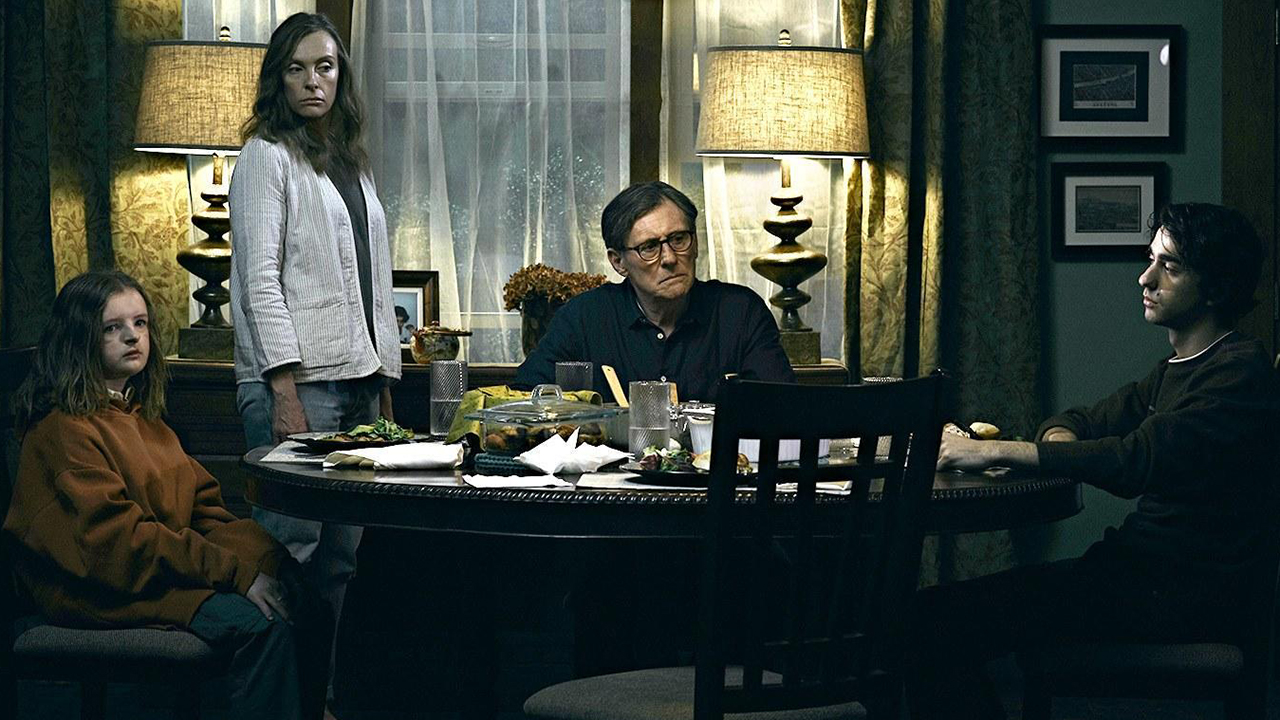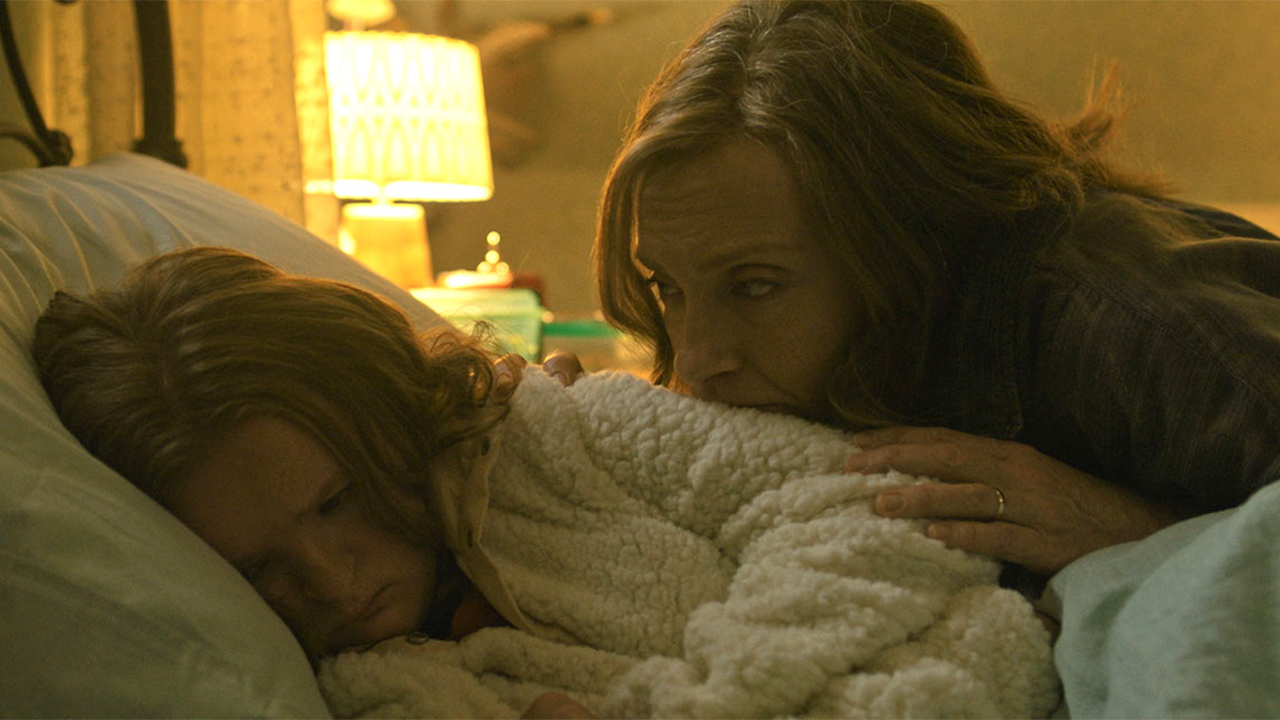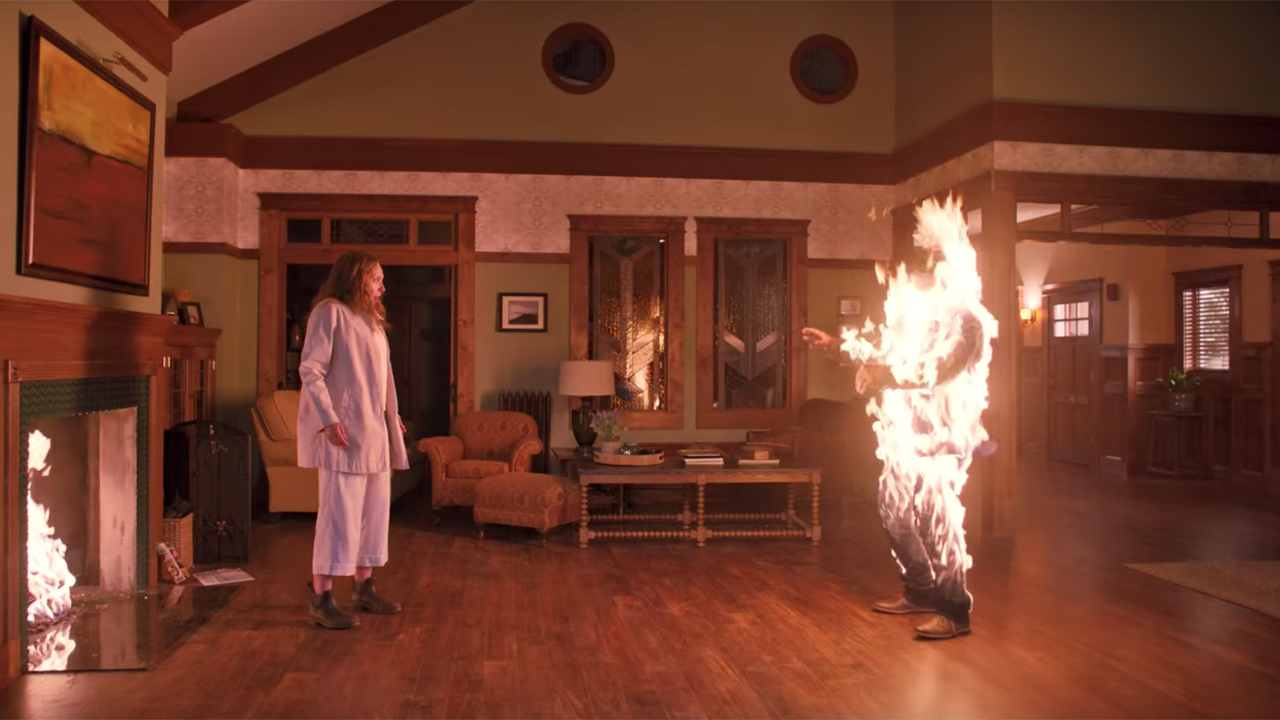GamesRadar+ Verdict
A tour-de-force turn from Toni Collette powers one of the most affecting horrors in recent memory. Genuinely unsettling in a way few genre efforts are: you’ve been warned.
Why you can trust GamesRadar+
It’s not advisable to see Hereditary alone. Setting aside the fact you might need an arm to clutch in the dark of the auditorium, you’re going to want to talk about it to somebody afterwards: for comfort, and to help you dissect what the hell you just saw. This is not the kind of film to yield all of its mysteries on first viewing. But whether you’ll be brave enough for repeat sittings is another matter entirely...
Forget jump scares and boogeymen. There are gasp-worthy images and shocking moments, but Hereditary trades in a more insidious, lingering kind of dread, one that’ll slowly burrow under your skin and have you squirming in discomfort. As with many films of this ilk, with gradual reveals and frequent left turns, the experience will be best served if you don’t know too much about the plot before you go in.
The film opens on an obituary, announcing that family matriarch Ellen Taper Leigh has passed away. Annie Graham (Toni Collette), the woman’s daughter, channels her grief into her artwork ahead of a gallery showing of her immaculate dioramas, which recreate scenes from her life in miniature. Not all is well within the Graham family. Outcast daughter Charlie (Milly Shapiro) is struggling to fit in at school; at night, she frequently leaves her bed to sleep in the treehouse. Son Peter (Alex Wolff) is sullen and withdrawn in a way that’s not unusual for a high-schooler. Husband/father Steve (Gabriel Byrne) stoically tries to keep the family stable through this trying time.

In the aftermath of Ellen’s death, tensions escalate within the family, and unsettling events increase in frequency – many of them relating to Charlie and her disturbing pastimes. The contents of her sketchbook are enough to give you the shivers, and she can occasionally be spotted carrying a headless pigeon around school. When it all gets a bit too much for Annie, she surreptitiously attends a grief counselling group, where she meets kindly Joan (Ann Dowd), who introduces her to the idea of a séance...
That barely scratches the surface of what’s going on in Hereditary. Themes of mental health and the psychological damage passed down through generations permeate, as does the heartache of parenthood and adolescence (and conflict between the two). Ellen clearly wasn’t an easy mother to live with, and her influence is still having a souring effect after her death; the roots of this family tree are rotten.
Holding the story together is an exceptional quartet of performances. Collette is at her best in a hugely demanding role that requires her to truly run the gamut. She evinces pain, fear, grief, despair and self-loathing, and is always totally gripping, never shying away from the character’s own darker side. Every role here is complex; everyone seems guilty of something, and everyone suffers. Byrne also reminds us how goodhe can be in a lower-key role, and Shapiro and Wolff are both incredible finds: Shapiro is intense, and a great conduit for scares, but crucially she’s also hugely empathetic, and Wolff (previously seen transformed into a Dwayne Johnson avatar in Jumanji) proves a powerhouse performer as he goes toe-to-toe with Collette.

This is an insanely assured debut from writer/director Ari Aster. Artfully composed without being pretentious or distancing, Hereditary plays with some neat visuals – including the frequent framing of the family home as if it’s one of Annie’s dollhouse- sized creations – but these are more than just flashy tricks. They add to the oppressive atmosphere, as the house itself takes on a sinister presence. There’s also a day-to-night transition that’s unlike anything you’ve seen before. The discordant sound design adds much to the unsettling effect, in a way that recalls the off-putting frequency Gaspar Noé had humming through Irreversible.
Besides the sustained terror, Hereditary is also often heartrending and asks uncomfortable questions about family relationships. There are even moments of dark humour that don’t so much punctuate the atmosphere as accentuate it. What’s also remarkable is that Aster manages to stick the landing after generating such a sustained campaign of mystery and suspense. You might still have questions when the credits roll, but you won’t feel short-changed.
It’s a film that you don’t so much enjoy as endure. But if you’ve got the constitution for it, it’s unlikely a film will make you feel more than Hereditary this year. But don’t go to the cinema alone. And make sure you leave a light on for when you come home. You won’t be sleeping without it...
- Release date: June 8, 2018 (US)/June 15, 2018 (UK)
- Certificate: R (US)/15 (UK)
- Running time: 126 mins

I'm the Editor at Total Film magazine, overseeing the running of the mag, and generally obsessing over all things Nolan, Kubrick and Pixar. Over the past decade I've worked in various roles for TF online and in print, including at GamesRadar+, and you can often hear me nattering on the Inside Total Film podcast. Bucket-list-ticking career highlights have included reporting from the set of Tenet and Avengers: Infinity War, as well as covering Comic-Con, TIFF and the Sundance Film Festival.




